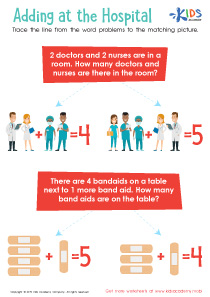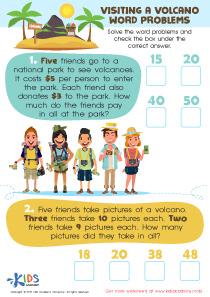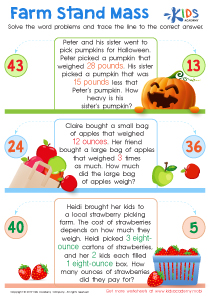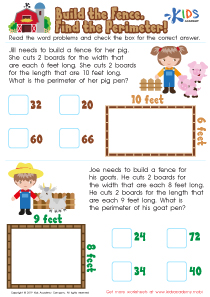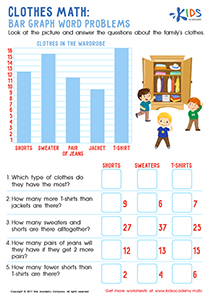Logical Reasoning Normal Two-step Word Problems Worksheets for 4-Year-Olds
3 filtered results
-
From - To
Enhance your 4-year-old's logical reasoning skills with our engaging Two-Step Word Problems Worksheets! Designed specifically for young learners, these worksheets introduce fun and interactive challenges that encourage critical thinking and problem-solving. Each activity presents relatable scenarios that require children to decipher problems and perform more than one calculation, promoting cognitive development. As children navigate through these normal two-step word problems, they build confidence in math while sharpening their ability to reason logically. Perfect for parents and educators alike, our worksheets go beyond basic math to foster essential thinking skills needed for future success. Start your child’s logical reasoning journey today!


Enrichment -2 Step Word Problems Worksheet


Solve the Problem: Trick–or–treating Worksheet


Addition and Subtraction: Word Problems Worksheet
Parents and teachers should care about Logical Reasoning Normal Two-step Word Problems for 4-year-olds because they lay a fundamental foundation for critical thinking and problem-solving skills. At this age, children are naturally curious and eager to explore their surroundings, making it an ideal time to introduce structured reasoning tasks. Engaging with two-step word problems helps children recognize relationships between numbers and contexts, fostering their ability to analyze situations and render logical conclusions.
Additionally, tackling these types of problems stimulates cognitive development, specifically in areas such as memory, attention, and mental flexibility. This vital skill set not only enhances mathematical abilities but also improves language proficiency as children learn to articulate their reasoning processes. Furthermore, solving two-step problems encourages perseverance and resilience; children learn that complex challenges can be addressed systematically, promoting a growth mindset.
By using relatable scenarios and hands-on activities in teaching these concepts, educators and parents can make learning enjoyable and relevant. Ultimately, supporting this stage of development enriches children's overall learning experiences, preparing them to tackle more complex academic tasks in the future while boosting their confidence and independence in thinking critically about the world around them.
 Assign to My Students
Assign to My Students





